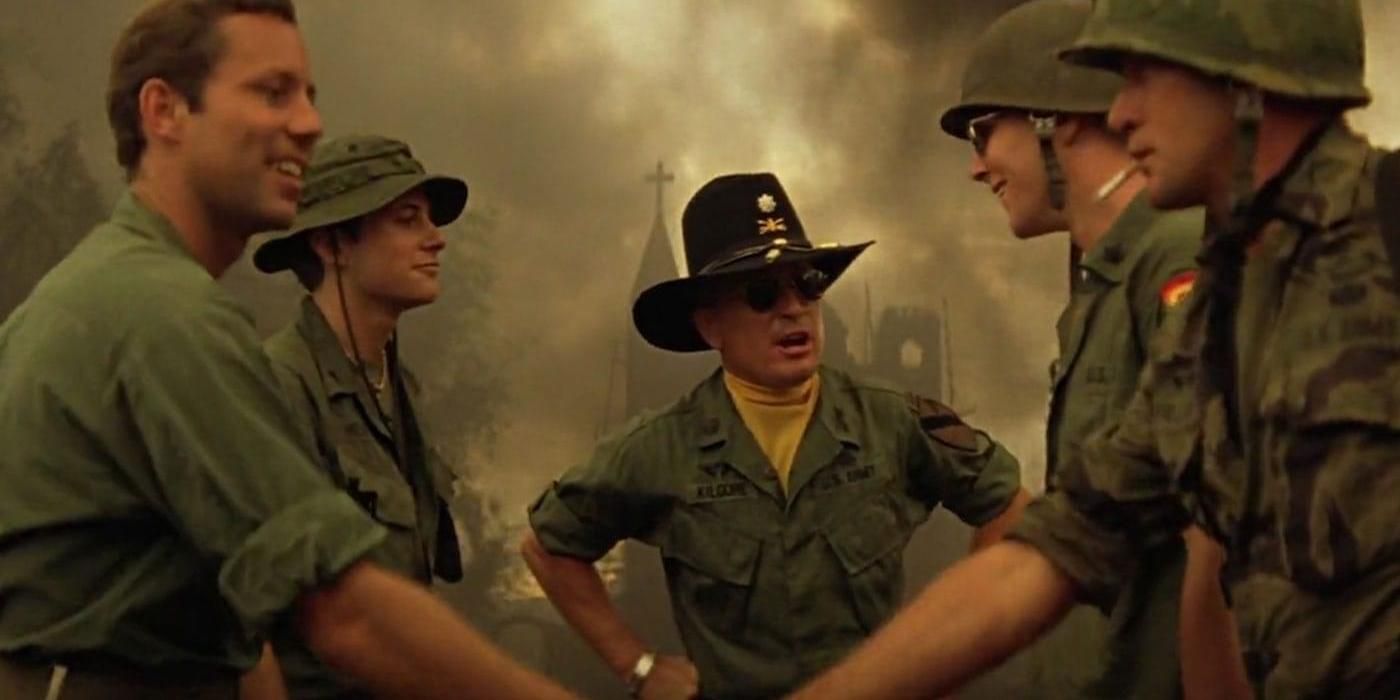Overview
Apocalypse Now, directed by Francis Ford Coppola, is one of the most iconic war films ever made. Released in 1979, the film is a loose adaptation of Joseph Conrad's novella Heart of Darkness, transposed from colonial Africa to the Vietnam War. With haunting visuals, unforgettable performances, and a descent into psychological chaos, the film is both a harrowing war story and a profound meditation on the darkness of the human soul.
Plot Summary
Set during the Vietnam War, the film follows Captain Benjamin L. Willard (played by Martin Sheen), a troubled soldier sent on a secret mission to assassinate Colonel Walter E. Kurtz (played by Marlon Brando), a once-respected officer who has gone rogue and established himself as a god-like figure deep in the Cambodian jungle. As Willard and his crew travel upriver into increasingly hostile and surreal territory, they encounter the madness, brutality, and absurdity of war.
Cast & Characters
-
Martin Sheen as Captain Willard, a man tormented by war and his inner demons.
-
Marlon Brando as Colonel Kurtz, a philosophical and terrifying figure who has abandoned conventional morality.
-
Robert Duvall as Lieutenant Colonel Kilgore, whose obsession with surfing during combat creates one of the film’s most memorable scenes.
-
Dennis Hopper as a manic photojournalist and disciple of Kurtz.
-
The cast delivers unforgettable performances that bring intensity and complexity to the narrative.
Cinematography & Direction
Coppola’s direction is visually stunning and deeply symbolic. The film features some of the most iconic scenes in cinematic history, including the famous helicopter assault to Wagner's "Ride of the Valkyries", the surreal jungle rituals, and the eerie final confrontation between Willard and Kurtz. The cinematography, shot by Vittorio Storaro, captures both the physical and psychological landscapes of war with stunning beauty and horror.

Soundtrack & Atmosphere
The soundtrack blends classical music, rock, and ambient sounds, helping to build the film’s unsettling tone. The use of The Doors’ song "The End" at the beginning and end of the film perfectly frames the psychological descent of its characters.
Themes & Symbolism
Apocalypse Now is not just a war film—it is a philosophical exploration of power, insanity, morality, and the capacity for evil. The journey upriver is symbolic of a journey into the unconscious, with each stop representing a deeper level of moral disintegration. Kurtz represents the ultimate breakdown of reason, a man who has embraced the horrors of war and made them his truth.
Legacy & Impact
Upon release, the film was both praised and controversial due to its intense subject matter and chaotic production. It won the Palme d'Or at the 1979 Cannes Film Festival and received 8 Academy Award nominations, winning for Best Cinematography and Best Sound.
The film has since become a classic, studied for its artistic achievements and philosophical depth. It remains one of the most powerful anti-war films ever made.
Conclusion
Apocalypse Now is more than a war film—it is a cinematic descent into madness, an exploration of the human psyche under the pressure of violence and chaos. With unforgettable performances, haunting imagery, and Coppola’s uncompromising vision, it stands as a towering achievement in film history. Even decades later, its themes of moral ambiguity and the horrors of war remain as relevant and disturbing as ever.

-1753435366-q80.webp)

-1752809381-q80.webp)
-1750651165-q80.webp)